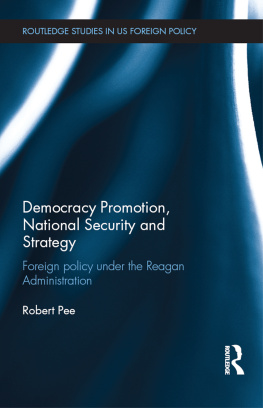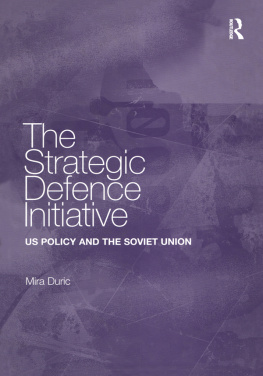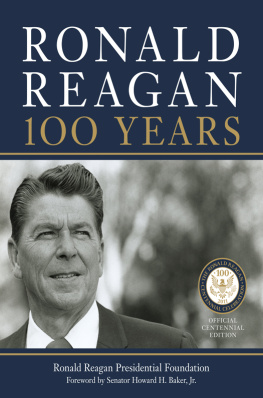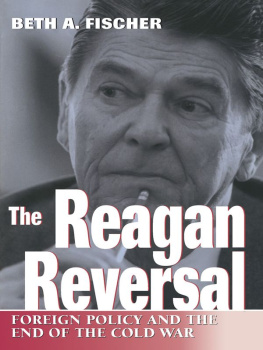Crossing The Rubicon
US Foreign Policy and Conflict in the Islamic World Series
Series Editors:
TomLansford
University of Southern Mississippi, USA
Jack Kalpakian
A1 Akhawayn University, Morocco
The proliferation of an anti-US ideology among radicalized Islamic groups has emerged as one of the most significant security concerns for the United States and contemporary global relations in the wake of the end of the Cold War. The terrorist attacks of September 11,2001 demonstrated the danger posed by Islamic extremists to US domestic and foreign interests. Through a wealth of case studies this new series examines the role that US foreign policy has played in exacerbating or ameliorating hostilities among and within Muslim nations as a means of exploring the rise in tension between some Islamic groups and the West. The series provides an interdisciplinary framework of analysis which, transcending traditional, narrow modes of inquiry, permits a comprehensive examination of US foreign policy in the context of the Islamic world.
Other titles in the series
Balancing Act
US Foreign Policy and the Arab-Israeli Conflict
Vaughn P. Shannon
ISBN 0 7546 3591 0
A Bitter Harvest
US Foreign Policy and Afghanistan
Tom Lansford
ISBN 0 7546 3615 1
US-Indonesian Hegemonic Bargaining
Strength of Weakness
Timo Kivimki
ISBN 07 546 3686
Crossing the Rubicon
Ronald Reagan and US Policy in the Middle East
Nicholas Laham
First published 2004 by Ashgate Publishing
Reissued 2018 by Routledge
2 Park Square, Milton Park, Abingdon, Oxon OX14 4RN
711 Third Avenue, New York, NY 10017, USA
Routledge is an imprint of the Taylor & Francis Group, an informa business
Nicholas Laham 2004
Nicholas Laham has asserted his right under the Copyright, Designs and Patents Act, 1988, to be identified as the author of this work.
All rights reserved. No part of this book may be reprinted or reproduced or utilised in any form or by any electronic, mechanical, or other means, now known or hereafter invented, including photocopying and recording, or in any information storage or retrieval system, without permission in writing from the publishers.
A Library of Congress record exists under LC control number: 2004041109
Notice:
Product or corporate names may be trademarks or registered trademarks, and are used only for identification and explanation without intent to infringe.
Publisher's Note
The publisher has gone to great lengths to ensure the quality of this reprint but points out that some imperfections in the original copies may be apparent.
Disclaimer
The publisher has made every effort to trace copyright holders and welcomes correspondence from those they have been unable to contact.
ISBN 13: 978-0-815-38836-4 (hbk)
ISBN 13: 978-1-351-16052-0 (ebk)
This book argues that American policy in the Middle East underwent a transformation as a result of a long-forgotten, but ultimately fateful, political battle which occurred in 1981: the debate over President Ronald Reagan's decision to approve the sale of the Airborne Warning and Control System (AWACS) to Saudi Arabia. Whether the transformation in policy which the AWACS debate unleashed was truly profound, historic, and momentous ultimately depends upon the nature of American diplomacy in the region which existed at the time Reagan entered the White House specifically, whether it was evenhanded or pro-Israel an issue which members of the Middle East policy community have yet to resolve. But there can be no doubt that the Reagan presidency represents a critical watershed in the evolution of that policy.
The AWACS debate embroiled the Reagan Administration in a pitched battle against perhaps the most well-organized and politically influential interest group in the United States the roughly 300 national and 200 local Jewish organizations which collectively represent the pro-Israel lobby. Charging that the AWACS sale to Saudi Arabia, an Arab nation with a long history of unrelenting hostility toward Israel, would threaten the security of the Jewish state, organized American Jewry mounted an intense and vociferous lobbying campaign to persuade Congress to block the deal. In the end the pro-Israel lobby was unsuccessful in this endeavor: defying the appeals of organized American Jewry, the Senate approved the sale, albeit by the very narrow margin of 52 to 48.
However, the pro-Israel lobby had succeeded in mobilizing substantial opposition to the AWACS sale in Congress. Indeed, in contrast to the Senate's approval of the sale by the bare of margin of four votes, the House of Representatives had summarily rejected the deal by an overwhelming margin of 301 to 111. Opposition to the sale in Congress was so massive that Reagan decided to give up on any hope that the House might approve the deal. Instead, Reagan focused his efforts on winning congressional approval for the sale in the Senate. From the time Reagan formally notified Congress of his intent to conclude the sale on 1 October 1981 until the Senate approved the deal 27 days later, Reagan mounted perhaps the most intense and massive lobbying campaign ever waged by any President on Capitol Hill to obtain congressional approval for a major public policy goal on his agenda. But for Reagan's October lobbying campaign, the sale would have gone down to a resounding defeat in the Senate.
The AWACS debate had left Reagan politically bruised and battered. He had taken on perhaps the most powerful interest group in Washington the pro-Israel lobby and he had defeated organized American Jewry over a major foreign policy issue involving the interests of Israel. However, Reagan's 'victory' had not come without political costs. In 1980 Reagan had been elected to the presidency with the largest share of the Jewish vote ever received by a Republican nominee a source of enormous importance to his efforts to build a solid Republican majority based upon the support of such traditionally Democratic constituencies as Jews and other Northern white ethnic urbanites and suburbanites. However, the AWACS debate had cost Reagan vital support within the Jewish community. In 1980 Jews had voted for Reagan with the expectation that he would honor his campaign promise to provide strong and unswerving support for Israel. However, only months into his presidency, Reagan had decided to approve the sale of advanced and sophisticated weaponry, especially the AWACS, to one of Israel's foremost enemies Saudi Arabia and then mounted an all-out campaign to win approval for the AWACS deal in Congress against the opposition of the pro-Israel lobby.
During his news conference on 1 October 1981, in which he formally notified Congress of his intent to conclude the sale, Reagan had declared, 'It is not the business of other nations to make American foreign policy' an indirect attack against Menachem Begin for having lobbied Congress against the deal during the Prime Minister's visit to Washington the previous month. This remark had anti-Semitic overtones, insofar as it conjured up the image of Israel using the American Jewish community as a surrogate to persuade Congress to block the sale an image which played into the hands of anti-Semites who believe that Jews exert 'excessive' influence over American policy in the Middle East. The fact that Reagan might resort to the use of anti-Semitic tactics, which were obviously intended to intimidate organized American Jewry into backing away from the continued pursuit of its fierce lobbying campaign against the sale, was a source of deep consternation and disillusionment within the Jewish community. Reagan emerged from the AW ACS debate having won the battle to sell the planes to Saudi Arabia, but with his reputation in the Jewish community having sunk perhaps to the lowest level for any President since the creation of Israel in 1948.












